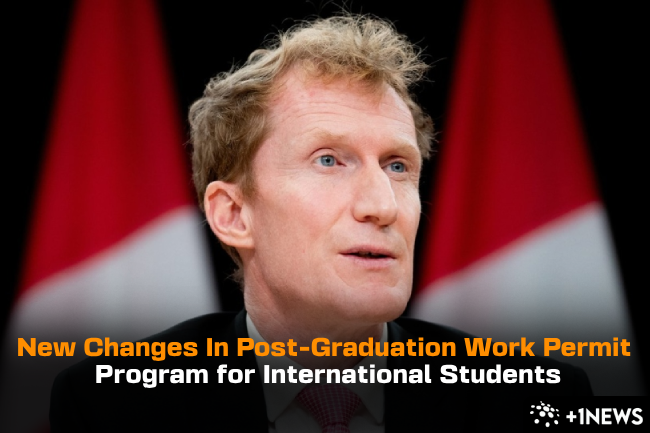Today, IRCC announced some important changes to the Post-Graduation Work Permit Program (PGWP) to ensure fairness and better alignment.
New Changes In Post-Graduation Work Permit Program
New Eligibility Criteria Effective September 1, 2024
These changes, effective from September 1, 2024, will impact international students, particularly those enrolled in study programs that are part of a curriculum licensing arrangement.
Under the new criteria, international students who start a study program through a curriculum licensing arrangement will no longer be eligible for a post-graduation work permit (PGWP) upon graduation.
This change addresses concerns about the oversight of private colleges operating under these agreements, which have become a loophole in the current system.
Positive News for Master’s Graduates
On a positive note, graduates of master’s and other short graduate-level programs will soon benefit from a significant improvement. They will become eligible to apply for a 3-year work permit.
Previously, the length of the post-graduation work permit (PGWP) was solely determined by the duration of an individual’s study program. This adjustment recognizes the unique needs of master’s graduates, giving them more time to gain valuable work experience and potentially transition to permanent residence.
Addressing the Popularity of Curriculum Licensing Arrangements
The move comes as a response to the growing popularity of study programs under curriculum licensing arrangements, where students attend a private college licensed to deliver the curriculum of an associated public college.
While these programs have attracted many international students in recent years, concerns have been raised about their oversight compared to public colleges.
Creating Balance for All Students
These changes aim to create a more balanced and fair system for all international students, ensuring that the post-graduation work permit program serves its purpose of facilitating the transition from study to work for those who contribute to Canada’s economy and society.
No PGWP Extension in 2024
On December 7, 2023, IRCC announced that there won’t be an extension for the Post-Graduation Work Permit (PGWP) in 2024. Because of challenges in the job market from the pandemic, a temporary policy was used three times to give extra work authorization for 18 months after the initial permit expired.
If your post-graduation work permit ends before December 31, 2023, you can apply for an extension under the PGWP extension 2023 policy. But remember, the government won’t continue this temporary policy, so there won’t be a PGWP extension in 2024.
Current and prospective international students need to stay informed about these changes and consider how they might affect their plans. As always, keeping up with updates from the Immigration, Refugees, and Citizenship Canada (IRCC) is crucial to understanding the evolving landscape of immigration policies in Canada.
How does the PGWP work?
The PGWP is a work permit for international graduates in Canada. It allows them to work for any Canadian employer without needing a job offer.
The PGWP is valid for up to three years. The length of your PGWP depends on how long your study program was in Canada. For example, if you completed a program between 8 months and less than 2 years, your PGWP will be valid for the same length (e.g., a 10-month program results in a 10-month PGWP).
The main benefit of the PGWP is that it lets international graduates gain work experience in Canada, which is useful when applying for permanent resident status.
To be eligible for a PGWP, international students must have:
- Completed a program that is at least eight months long at an eligible Designated Learning Institution (DLI).
- Their program must lead to a degree, diploma, or certificate.
- Been a full-time student in Canada during every academic session of the program and included this in their PGWP application.
- Obtained a transcript and an official letter from the DLI confirming they met all requirements to complete their program.
Graduates must have completed their studies at:
- A public post-secondary institution (like a college, trade or technical school, university, or CEGEP in Quebec).
- A private post-secondary school in Quebec that follows the same rules as public schools.
- A private secondary or post-secondary school in Quebec that offers qualifying programs of 900 hours or longer resulting in a DEP or ASP.
- A Canadian private school that can award degrees under provincial law, but only if the student was enrolled in a degree program authorized by the province.
According to November 2023 data from IRCC, 62,410 international student graduates obtained permanent residency in Canada, an increase from 52,740 in 2022.














